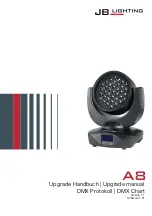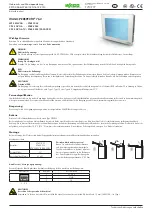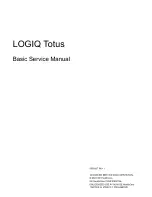
D01399101A
Z
Strain gauge load cell Instructions for Use
TC-PF2(T)-G
Compression Load Cell
Introduction
Thank you for purchasing the TC-PF2(T)-G load cell.
Please read this document completely before using this
load cell to achieve its best performance and ensure safe
and proper operation.
o
Company names and product names in this document are the
trademarks or registered trademarks of their respective owners.
Included accessories
If anything is missing or damaged, contact the retailer
where you purchased the product.
Test report × 1
Instructions for Use (this document) × 1
Adhesive tape for attachment × 2
IMPORTANT SAFETY INSTRUCTIONS
V
WARNING
If something abnormal occurs
Request repair from the retailer where you purchased
the product.
Do not open the cover.
Never remove the cover from this unit. Doing so could
cause malfunction. Request inspection and repair from the
retailer where you purchased the product. Do not alter this
unit. Doing so could cause malfunction.
Do not put foreign objects or water, for example,
into the unit.
Do not place a container that holds water, for example, on
top of this unit. If liquid is spilled, for example, and enters
the unit, this could cause malfunction.
Do not use the unit with any power supply voltage
other than that specified.
Do not use the unit with any power supply voltage other
than that specified. Doing so could cause malfunction.
V
CAUTION
Unsuitable installation locations
Do not place the unit in the following types of locations.
Doing so could cause malfunction.
o
Near a power line
o
Locations where strong magnetic fields exist or magnetic
fields could occur
o
Where static electricity or noise, (for example, from a
relay) is generated
o
Locations subject to temperatures exceeding the
specified temperature and humidity ranges
o
Locations subject to direct vibration or shock
o
Locations subject to radiant heat from heat sources
o
Locations exposed to dirt and dust
o
Locations subject to severe temperature changes
o
Locations that could freeze
o
Locations where liquid, for example, could enter the
unit as well as locations with high humidity where
condensation could occur
o
Locations where it might be exposed to smoke or steam,
such as near a kitchen table or humidifier
o
Unstable locations, including unsteady stands and
tilted places
o
Locations that are very humid or dusty
o
Locations that are exposed to direct sunlight
When not using the unit for a long time
For safety, cut the power supply when not using this unit
for a long time.
Do not operate a damaged unit.
Precautions for use
o
This unit is not built to be water or splash resistant,
and it cannot be used in conditions when the relative
humidity is high. Moreover, use in atmospheres with
corrosive gases should be avoided.
o
Be careful to prevent water, oil and other substances
from getting on the unit.
o
Avoid use in conditions where condensation could occur.
o
Connect cores to the load cell after discharging (elim-
inating) static electricity from your body.
o
If the surrounding temperature changes suddenly, the
values output by this device could become unstable,
making accurate measurement impossible.
(This could occur, for example, in a location blown by
warm or cold air.)
o
If a cable of this unit needs to be bent and shifted, make
the curvature of the bent part at least 50 mm. Do not
apply tension to the cable.
o
Conduct load calibrations periodically.
Installation procedures
o
Install this unit in a place where the structure is level
and can sufficiently bear the load being used.
o
When attaching this load cell to a surface that is not flat,
such as a brake pedal, utilize a spacer that is sufficiently
stiff between it and the pedal so that it can be attached
to a flat surface.
o
To attach this load cell to a brake pedal, attach the pre-
pared spacer to the load cell and then use the provided
adhesive tape to attach it to the brake pedal. (See the
illustration below.)
Brake pedal
Included adhesive tape
Spacer
Cable
Pedal force meter:
TC-PF2(T)-G
ATTENTION
Attaching this load cell to the curved surface of a pedal
without using a spacer could cause force to be applied to
part of its bottom, causing measurement not to be accurate
and even damaging it.
o
When attaching this load cell, consider the orientation
of the connected cable so that it does not obstruct
operation of the pedal, for example. Attach the cable
to the pedal stay or similar location so that it does not
move with vibration, for example.
o
When using it, always thoroughly verify that it will not
become displaced or detached.
Precautions in spacer design
o
Keep in mind that the spacer should conform to the
shape of the pedal to fill in any gap between it and this
load cell. The spacer should enable attachment of this
load cell to a flat surface regardless of the shape of the
pedal. The form should also enable secure attachment.
o
The M3 screw holes on the back of this load cell can
be used to attach it and the spacer. This screw depth
is 2 mm. The screw hole is open-ended, so if the screw
depth exceeds 2 mm, the tip of the attachment screw
could penetrate the inside and contact the interior
structure causing damage. Please use caution.
2
Internal
structure
Bottom surface of
TC-PF2(T)-G
M3 screw hole
Screw insertion orientation
o
Please contact the retailer where you purchased the unit
if you have any uncertainties about spacers.
Precautions when placing loads on the
unit
o
Make sure the load is perpendicular to the surface to
which this unit is attached.
o
Apply the load so that it is centered on the center of
the unit. If the load is not centered (eccentric load),
twisting, for example, and measurement errors could
occur. This could even result in damage.
Brake pedal
Included adhesive tape
Spacer
Pedal force meter:
TC-PF2(T)-G
Load from pedal
force is evenly
distributed
Pedal stay
o
Be careful to avoid turning and twisting from lateral
loads. This could cause troubles like those described
in the previous item.
o
Be careful to avoid applying loads that exceed the
rated capacity. In particular, use caution when there are
vibrations because loads that exceed the rated capacity
could occur due to sympathetic vibrations, for example.
o
If the load receiving area is contacted by something that
is at a different temperature and the load is increased,
the values output by this device could become unstable,
making accurate measurement impossible.
In such a case, wait until the temperature difference
ceases to exist before measuring.




















